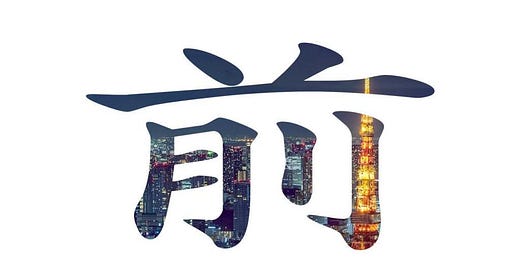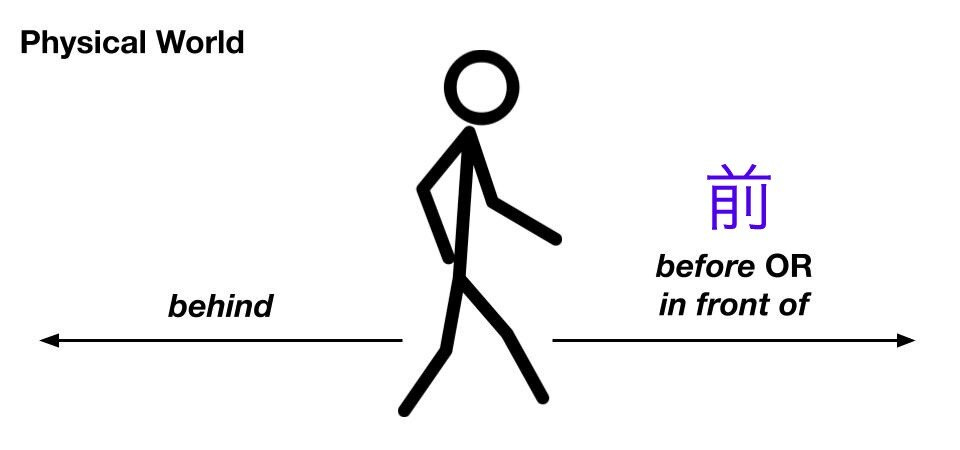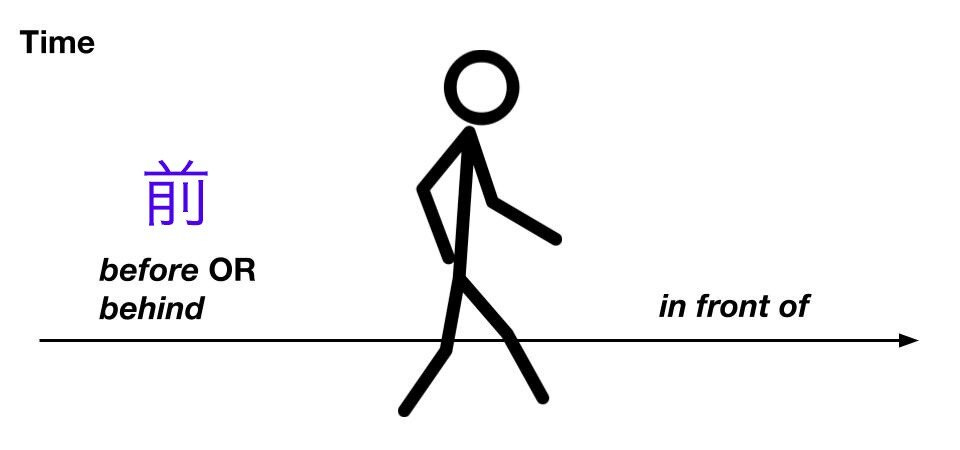When I was first learning Japanese, I often got tripped up with how we used the word mae (前). It means "before" in two very different senses:
In the physical world, something physically in front of you
In a sense of time, something that happened previously
Let's drop mae into a simple diagram to see where it appears to a reference person.
I tend to think of time as a long walk along some kind of line, so it was new to me that where mae appeared differeddepending on if we were talking about the physical world or in the context of time. I was a person who often thought the past was behind me, and took that into business as well.
But over the years of navigating Japanese business culture, it started to make sense: what's happened in the past (mae) matters, and it's just as easily right in front of you (mae).
Re-contextualizing this concept into doing business in Japan, a few things become apparent:
Existing (or even "legacy") business models matter, so if you're playing the market disruptor, consider how your new way still feels familiar
You can't ignore (but can make up for) past mistakes; apologize to clean up what's right in front of someone you're trying to do business with
Trying to land a partnership away from existing players? Consider how you make sense in the historical context instead of being the buzzy new thing
Whether it's in front of or behind you, mae (前) always will find a way to be relevant.







